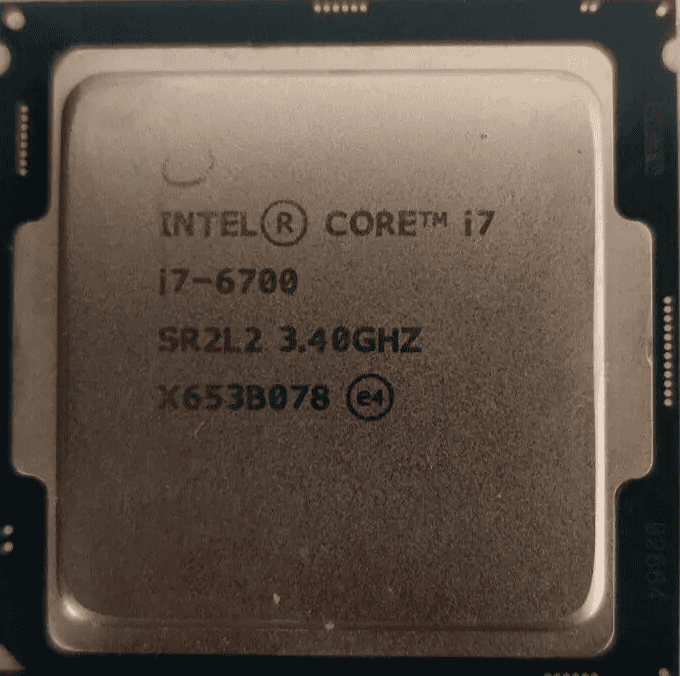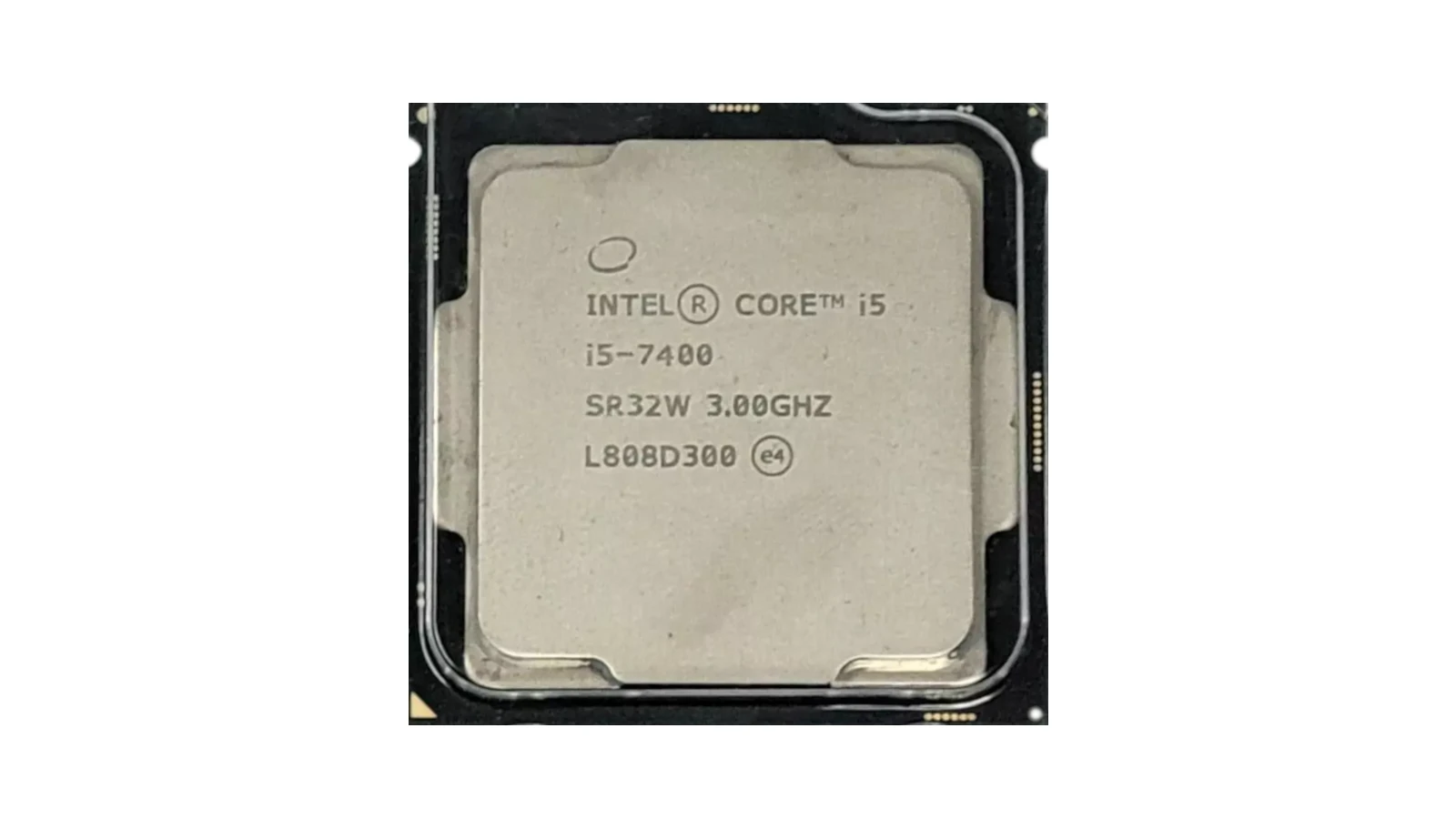LGA 1151 is a socket type for Intel desktop processors. It works with many popular CPU models. The LGA 1151 socket supports Skylake, Kaby Lake, and Coffee Lake processors from Intel’s Core series.
This socket came out in 2015. It marked a big change for Intel CPUs. The new design allowed for faster speeds and better power use. It also brought support for DDR4 memory, which was a big step up from DDR3.
Intel made two versions of LGA 1151. The first one worked with 6th and 7th gen Core CPUs. The second version was for 8th and 9th gen chips. This split caused some confusion for buyers. It’s key to check which version a motherboard uses before buying a CPU.
LGA1151 CPU List
| Name | Core Count | Core Clock | Boost Clock | Microarchitecture | TDP |
| Intel Celeron G3900 | 2 | 2.8 GHz | n/a | Skylake | 51 W |
| Intel Celeron G3920 | 2 | 2.6 GHz | n/a | Skylake | 35 W |
| Intel Celeron G3930 | 2 | 2.9 GHz | n/a | Kaby Lake | 51 W |
| Intel Celeron G3930T | 2 | 2.7 GHz | n/a | Kaby Lake | 35 W |
| Intel Celeron G3950 | 2 | 3 GHz | n/a | Kaby Lake | 51 W |
| Intel Celeron G4900 | 2 | 3.1 GHz | n/a | Coffee Lake | 65 W |
| Intel Celeron G4900T | 2 | 1.8 GHz | n/a | Coffee Lake | 35 W |
| Intel Celeron G4920 | 2 | 3.2 GHz | n/a | Coffee Lake | 65 W |
| Intel Celeron G4930 | 2 | 3.2 GHz | n/a | Coffee Lake | 54 W |
| Intel Core i3-6098P | 2 | 3.6 GHz | n/a | Skylake | 54 W |
| Intel Core i3-6100 | 2 | 3.7 GHz | n/a | Skylake | 51 W |
| Intel Core i3-6100T | 2 | 3.2 GHz | n/a | Skylake | 35 W |
| Intel Core i3-6300 | 2 | 3.8 GHz | n/a | Skylake | 51 W |
| Intel Core i3-6300T | 2 | 3.3 GHz | n/a | Skylake | 35 W |
| Intel Core i3-6320 | 2 | 3.9 GHz | n/a | Skylake | 51 W |
| Intel Core i3-7100 | 2 | 3.9 GHz | n/a | Kaby Lake | 51 W |
| Intel Core i3-7100T | 2 | 3.4 GHz | n/a | Kaby Lake | 35 W |
| Intel Core i3-7101TE | 2 | 3.4 GHz | n/a | Kaby Lake | 35 W |
| Intel Core i3-7300 | 2 | 4 GHz | n/a | Kaby Lake | 51 W |
| Intel Core i3-7300T | 2 | 3.5 GHz | n/a | Kaby Lake | 35 W |
| Intel Core i3-7320 | 2 | 4.1 GHz | n/a | Kaby Lake | 51 W |
| Intel Core i3-7350K | 2 | 4.2 GHz | n/a | Kaby Lake | 60 W |
| Intel Core i3-8100 | 4 | 3.6 GHz | n/a | Coffee Lake | 65 W |
| Intel Core i3-8100T | 4 | 3.1 GHz | n/a | Coffee Lake | 35 W |
| Intel Core i3-8300 | 4 | 3.7 GHz | n/a | Coffee Lake | 62 W |
| Intel Core i3-8300T | 4 | 3.2 GHz | n/a | Coffee Lake | 35 W |
| Intel Core i3-8350K | 4 | 4 GHz | n/a | Coffee Lake | 91 W |
| Intel Core i3-9100 | 4 | 3.6 GHz | 4.2 GHz | Coffee Lake Refresh | 65 W |
| Intel Core i3-9100F | 4 | 3.6 GHz | 4.2 GHz | Coffee Lake Refresh | 65 W |
| Intel Core i3-9100T | 4 | 3.1 GHz | 3.7 GHz | Coffee Lake Refresh | 35 W |
| Intel Core i3-9300 | 4 | 3.7 GHz | 4.3 GHz | Coffee Lake Refresh | 62 W |
| Intel Core i3-9320 | 4 | 3.7 GHz | 4.4 GHz | Coffee Lake Refresh | 62 W |
| Intel Core i3-9350K | 4 | 4 GHz | 4.6 GHz | Coffee Lake Refresh | 91 W |
| Intel Core i3-9350KF | 4 | 4 GHz | 4.6 GHz | Coffee Lake Refresh | 91 W |
| Intel Core i5-6400 | 4 | 2.7 GHz | 3.3 GHz | Skylake | 65 W |
| Intel Core i5-6400T | 4 | 2.2 GHz | 2.8 GHz | Skylake | 35 W |
| Intel Core i5-6402P | 4 | 2.8 GHz | 3.4 GHz | Skylake | 65 W |
| Intel Core i5-6500 | 4 | 3.2 GHz | 3.6 GHz | Skylake | 65 W |
| Intel Core i5-6500T | 4 | 2.5 GHz | 3.1 GHz | Skylake | 35 W |
| Intel Core i5-6600 | 4 | 3.3 GHz | 3.9 GHz | Skylake | 65 W |
| Intel Core i5-6600K | 4 | 3.5 GHz | 3.9 GHz | Skylake | 91 W |
| Intel Core i5-6600T | 4 | 2.7 GHz | 3.5 GHz | Skylake | 35 W |
| Intel Core i5-7400 | 4 | 3 GHz | 3.5 GHz | Kaby Lake | 65 W |
| Intel Core i5-7400T | 4 | 2.4 GHz | 3 GHz | Kaby Lake | 35 W |
| Intel Core i5-7500 | 4 | 3.4 GHz | 3.8 GHz | Kaby Lake | 65 W |
| Intel Core i5-7500T | 4 | 2.7 GHz | 3.3 GHz | Kaby Lake | 35 W |
| Intel Core i5-7600 | 4 | 3.5 GHz | 4.1 GHz | Kaby Lake | 65 W |
| Intel Core i5-7600K | 4 | 3.8 GHz | 4.2 GHz | Kaby Lake | 91 W |
| Intel Core i5-7600T | 4 | 2.8 GHz | 3.7 GHz | Kaby Lake | 35 W |
| Intel Core i5-8400 | 6 | 2.8 GHz | 4 GHz | Coffee Lake | 65 W |
| Intel Core i5-8400T | 6 | 1.7 GHz | 3.3 GHz | Coffee Lake | 35 W |
| Intel Core i5-8500 | 6 | 3 GHz | 4.1 GHz | Coffee Lake | 65 W |
| Intel Core i5-8500T | 6 | 2.1 GHz | 3.5 GHz | Coffee Lake | 35 W |
| Intel Core i5-8600 | 6 | 3.1 GHz | 4.3 GHz | Coffee Lake | 65 W |
| Intel Core i5-8600K | 6 | 3.6 GHz | 4.3 GHz | Coffee Lake | 95 W |
| Intel Core i5-8600T | 6 | 2.3 GHz | 3.7 GHz | Coffee Lake | 35 W |
| Intel Core i5-9400 | 6 | 2.9 GHz | 4.1 GHz | Coffee Lake Refresh | 65 W |
| Intel Core i5-9400F | 6 | 2.9 GHz | 4.1 GHz | Coffee Lake Refresh | 65 W |
| Intel Core i5-9400T | 6 | 1.8 GHz | 3.4 GHz | Coffee Lake Refresh | 35 W |
| Intel Core i5-9500 | 6 | 3 GHz | 4.4 GHz | Coffee Lake Refresh | 65 W |
| Intel Core i5-9500F | 6 | 3 GHz | 4.4 GHz | Coffee Lake Refresh | 65 W |
| Intel Core i5-9500T | 6 | 2.2 GHz | 3.7 GHz | Coffee Lake Refresh | 35 W |
| Intel Core i5-9600 | 6 | 3.1 GHz | 4.6 GHz | Coffee Lake Refresh | 65 W |
| Intel Core i5-9600K | 6 | 3.7 GHz | 4.6 GHz | Coffee Lake Refresh | 95 W |
| Intel Core i5-9600KF | 6 | 3.7 GHz | 4.6 GHz | Coffee Lake Refresh | 95 W |
| Intel Core i5-9600T | 6 | 2.3 GHz | 3.9 GHz | Coffee Lake Refresh | 35 W |
| Intel Core i7-6700 | 4 | 3.4 GHz | 4 GHz | Skylake | 65 W |
| Intel Core i7-6700K | 4 | 4 GHz | 4.2 GHz | Skylake | 91 W |
| Intel Core i7-6700T | 4 | 2.8 GHz | 3.6 GHz | Skylake | 35 W |
| Intel Core i7-7700 | 4 | 3.6 GHz | 4.2 GHz | Kaby Lake | 65 W |
| Intel Core i7-7700K | 4 | 4.2 GHz | 4.5 GHz | Kaby Lake | 91 W |
| Intel Core i7-7700T | 4 | 2.9 GHz | 3.8 GHz | Kaby Lake | 35 W |
| Intel Core i7-8086K | 6 | 4 GHz | 5 GHz | Coffee Lake | 95 W |
| Intel Core i7-8700 | 6 | 3.2 GHz | 4.6 GHz | Coffee Lake | 65 W |
| Intel Core i7-8700K | 6 | 3.7 GHz | 4.7 GHz | Coffee Lake | 95 W |
| Intel Core i7-8700T | 6 | 2.4 GHz | 4 GHz | Coffee Lake | 35 W |
| Intel Core i7-9700 | 8 | 3 GHz | 4.7 GHz | Coffee Lake Refresh | 65 W |
| Intel Core i7-9700F | 8 | 3 GHz | 4.7 GHz | Coffee Lake Refresh | 65 W |
| Intel Core i7-9700K | 8 | 3.6 GHz | 4.9 GHz | Coffee Lake Refresh | 95 W |
| Intel Core i7-9700KF | 8 | 3.6 GHz | 4.9 GHz | Coffee Lake Refresh | 95 W |
| Intel Core i7-9700T | 8 | 2 GHz | 4.3 GHz | Coffee Lake Refresh | 35 W |
| Intel Core i9-9900 | 8 | 3.1 GHz | 5 GHz | Coffee Lake Refresh | 65 W |
| Intel Core i9-9900K | 8 | 3.6 GHz | 5 GHz | Coffee Lake Refresh | 95 W |
| Intel Core i9-9900KF | 8 | 3.6 GHz | 5 GHz | Coffee Lake Refresh | 95 W |
| Intel Core i9-9900KS | 8 | 4 GHz | 5 GHz | Coffee Lake Refresh | 127 W |
| Intel Core i9-9900T | 8 | 2.1 GHz | 4.4 GHz | Coffee Lake Refresh | 35 W |
| Intel Pentium G4400 | 2 | 3.3 GHz | n/a | Skylake | 54 W |
| Intel Pentium G4400T | 2 | 2.9 GHz | n/a | Skylake | 35 W |
| Intel Pentium G4500 | 2 | 3.5 GHz | n/a | Skylake | 51 W |
| Intel Pentium G4500T | 2 | 3 GHz | n/a | Skylake | 35 W |
| Intel Pentium G4520 | 2 | 3.6 GHz | n/a | Skylake | 51 W |
| Intel Pentium G4560 | 2 | 3.5 GHz | n/a | Kaby Lake | 54 W |
| Intel Pentium G4560T | 2 | 2.9 GHz | n/a | Kaby Lake | 35 W |
| Intel Pentium G4600 | 2 | 3.6 GHz | n/a | Kaby Lake | 51 W |
| Intel Pentium G4600T | 2 | 3 GHz | n/a | Kaby Lake | 35 W |
| Intel Pentium G4620 | 2 | 3.7 GHz | n/a | Kaby Lake | 51 W |
| Intel Pentium Gold G5400 | 2 | 3.7 GHz | n/a | Coffee Lake | 58 W |
| Intel Pentium Gold G5400T | 2 | 3.1 GHz | n/a | Coffee Lake | 35 W |
| Intel Pentium Gold G5420 | 2 | 3.8 GHz | n/a | Coffee Lake | 54 W |
| Intel Pentium Gold G5500 | 2 | 3.8 GHz | n/a | Coffee Lake | 54 W |
| Intel Pentium Gold G5500T | 2 | 3.2 GHz | n/a | Coffee Lake | 35 W |
| Intel Pentium Gold G5600 | 2 | 3.9 GHz | n/a | Coffee Lake | 54 W |
| Intel Xeon E-2104G | 4 | 3.2 GHz | n/a | Coffee Lake | 65 W |
| Intel Xeon E-2124 | 4 | 3.3 GHz | 4.3 GHz | Coffee Lake | 71 W |
| Intel Xeon E-2124G | 4 | 3.4 GHz | 4.5 GHz | Coffee Lake | 71 W |
| Intel Xeon E-2126G | 6 | 3.3 GHz | 4.5 GHz | Coffee Lake | 80 W |
| Intel Xeon E-2134 | 4 | 3.5 GHz | 4.5 GHz | Coffee Lake | 71 W |
| Intel Xeon E-2136 | 6 | 3.3 GHz | 4.5 GHz | Coffee Lake | 80 W |
| Intel Xeon E-2144G | 4 | 3.6 GHz | 4.5 GHz | Coffee Lake | 71 W |
| Intel Xeon E-2146G | 6 | 3.5 GHz | 4.5 GHz | Coffee Lake | 80 W |
| Intel Xeon E-2174G | 4 | 3.8 GHz | 4.7 GHz | Coffee Lake | 71 W |
| Intel Xeon E-2176G | 6 | 3.7 GHz | 4.7 GHz | Coffee Lake | 80 W |
| Intel Xeon E-2236 | 6 | 3.4 GHz | 4.8 GHz | Coffee Lake Refresh | 80 W |
| Intel Xeon E-2244G | 4 | 3.8 GHz | 4.8 GHz | Coffee Lake Refresh | 71 W |
| Intel Xeon E-2246G | 6 | 3.6 GHz | 4.8 GHz | Coffee Lake Refresh | 80 W |
| Intel Xeon E-2274G | 4 | 4 GHz | 4.9 GHz | Coffee Lake Refresh | 83 W |
| Intel Xeon E-2276G | 6 | 3.8 GHz | 4.9 GHz | Coffee Lake Refresh | 80 W |
| Intel Xeon E-2278G | 8 | 3.4 GHz | 5 GHz | Coffee Lake Refresh | 80 W |
| Intel Xeon E-2286G | 6 | 4 GHz | 4.9 GHz | Coffee Lake Refresh | 95 W |
| Intel Xeon E-2288G | 8 | 3.7 GHz | 5 GHz | Coffee Lake Refresh | 95 W |
| Intel Xeon E3-1220 V5 | 4 | 3 GHz | 3.5 GHz | Skylake | 80 W |
| Intel Xeon E3-1220 V6 | 4 | 3 GHz | 3.5 GHz | Kaby Lake | 72 W |
| Intel Xeon E3-1225 V5 | 4 | 3.3 GHz | 3.7 GHz | Skylake | 80 W |
| Intel Xeon E3-1225 V6 | 4 | 3.3 GHz | 3.7 GHz | Kaby Lake | 73 W |
| Intel Xeon E3-1230 V5 | 4 | 3.4 GHz | 3.8 GHz | Skylake | 80 W |
| Intel Xeon E3-1230 V6 | 4 | 3.5 GHz | 3.9 GHz | Kaby Lake | 72 W |
| Intel Xeon E3-1235L V5 | 4 | 2 GHz | 3 GHz | Skylake | 25 W |
| Intel Xeon E3-1240 V5 | 4 | 3.5 GHz | 3.9 GHz | Skylake | 80 W |
| Intel Xeon E3-1240 V6 | 4 | 3.7 GHz | 4.1 GHz | Kaby Lake | 72 W |
| Intel Xeon E3-1240L V5 | 4 | 2.1 GHz | 3.2 GHz | Skylake | 25 W |
| Intel Xeon E3-1245 V5 | 4 | 3.5 GHz | 3.9 GHz | Skylake | 80 W |
| Intel Xeon E3-1245 V6 | 4 | 3.7 GHz | 4.1 GHz | Kaby Lake | 73 W |
| Intel Xeon E3-1260L V5 | 4 | 2.9 GHz | 3.9 GHz | Skylake | 45 W |
| Intel Xeon E3-1270 V5 | 4 | 3.6 GHz | 4 GHz | Skylake | 80 W |
| Intel Xeon E3-1270 V6 | 4 | 3.8 GHz | 4.2 GHz | Kaby Lake | 72 W |
| Intel Xeon E3-1275 V5 | 4 | 3.6 GHz | 4 GHz | Skylake | 80 W |
| Intel Xeon E3-1275 V6 | 4 | 3.8 GHz | 4.2 GHz | Kaby Lake | 73 W |
| Intel Xeon E3-1280 V5 | 4 | 3.7 GHz | 4 GHz | Skylake | 80 W |
| Intel Xeon E3-1280 V6 | 4 | 3.9 GHz | 4.2 GHz | Kaby Lake | 72 W |
| Intel Xeon E3-1285 V6 | 4 | 4.1 GHz | 4.5 GHz | Kaby Lake | 79 W |

Key Takeaways
- LGA 1151 fits many Intel Core processors from 6th to 9th gen
- The socket has two versions, each working with different CPU sets
- It brought new features like DDR4 memory support and better power use
Understanding LGA 1151 CPU Lineup and Compatibility
LGA 1151 is a CPU socket used by Intel for several generations of processors. It supports a wide range of CPUs with different features and performance levels.
Characteristics of LGA 1151 CPUs
LGA 1151 CPUs come in various models. They include Intel Core i3, i5, i7, and i9 processors. These CPUs have different core counts and clock speeds.
The Intel Core i3-9100F is a budget-friendly option. It has 4 cores and no integrated graphics. The Core i5-9600K is a mid-range choice with 6 cores. It’s good for gaming and everyday tasks.
For high-end users, there’s the Core i7-9700K. It has 8 cores and can reach up to 4.9 GHz with Turbo Boost. The top-tier option is the Core i9-9900K. It has 8 cores, 16 threads, and a max boost of 5.0 GHz.
Most LGA 1151 CPUs support features like Intel Turbo Boost and Intel Optane Memory. Some models also have integrated graphics.
Evolution of LGA 1151: Skylake to Coffee Lake Refresh
The LGA 1151 socket has been used for several CPU generations. It started with Skylake (6th gen) and ended with Coffee Lake Refresh (9th gen).
Skylake CPUs came out in 2015. They brought DDR4 memory support to mainstream Intel platforms. Kaby Lake (7th gen) followed in 2017. It had small performance gains over Skylake.
Coffee Lake (8th gen) was a big step. It added more cores to each CPU tier. The i3 went from 2 to 4 cores. The i5 went from 4 to 6 cores. The i7 went from 4 to 6 cores with hyperthreading.
Coffee Lake Refresh (9th gen) made more tweaks. It removed hyperthreading from i7 CPUs but added more cores. The i9-9900K became the new top model with 8 cores and 16 threads.
Memory and Chipset Compatibility
LGA 1151 CPUs work with DDR4 memory. Some early models also supported DDR3. This is called UniDIMM support. It let users keep their old DDR3 RAM when upgrading.
The chipset is crucial for compatibility. Not all LGA 1151 CPUs work with all LGA 1151 motherboards. The socket stayed the same, but the pinout changed.
6th and 7th gen CPUs work with 100 and 200 series chipsets. 8th and 9th gen CPUs need 300 series chipsets. Using the wrong combo won’t work, even if the CPU fits the socket.
Motherboard Considerations for LGA 1151 CPUs
Picking the right motherboard is key for LGA 1151 CPUs. The chipset must match the CPU generation. Z-series chipsets allow overclocking for K-series CPUs.
Some boards need a BIOS update to support newer CPUs. Check with the motherboard maker before buying. This is especially true for 9th gen CPUs on older 300-series boards.
Power delivery is important too. High-end CPUs like the i9-9900K need strong VRMs. This ensures stable performance, especially when overclocking.
Look for features that match your needs. This might include M.2 slots, USB 3.1 ports, or Wi-Fi. The right board depends on your specific use case and budget.







